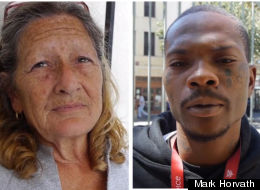Two federal agencies will steer tax money for social programs through a new for-profit investing tool tested in the United Kingdom and Australia, according to a report co-authored by the White House and the Nonprofit Finance Fund.Rather than providing social services directly, the bonds will allow the government to task a firm in the private sector to solve a public challenge, paying the company only if it achieves certain success metrics. Using pay-for-success bonds could save taxpayer money, earn a profit for impact investors, and incentivize innovation to solve chronic social challenges. In the United States, this is all theoretical at this point, but 2012 may be the year that changes.
The Department of Labor will make available $20 million for pay-for-success projects that help Americans find work through its Workforce Innovation Fund. The Department of Justice has not released a specific number, but says it will give preference to applicants to the Second Chance Act grants program who incorporate some pay-for-success element. That program, started in 2008, awards grants to governments and nonprofits that help ex-prisoners find work and get back on their feet so they don’t return to crime.
That’s the basic idea behind the original pay-for-success bond—more commonly known as social impact bonds—in Peterborough, England. That plan, launched in 2010, was designed to lower young offenders' recidivism rates in one small prison outside London. The closely watched program won’t deliver conclusive results for investors or the juvenile offenders for a few more years. But the idea was attractive enough that other agencies in the U.K. and Australia started copy-cat programs to care for the disabled and fight homelessness.
The early evidence from the United Kingdom suggest social impact bonds are a promising innovation for lean budgetary times because the government doesn’t end up paying for projects that fail. If the company in in the U.K. pilot fails to reduce recidivism by 7 percent, its private investors, not the government, lose the $13 million spent on programs for the young offenders. Shifting risk from government to investors enables new designs for social projects—and in theory, frees up lots more money to spend on them.
“We’re seeing tremendous momentum for developing social impact bonds," in the United States, says Steve Goldberg of Social Finance U.S. His organization designed the first bond in Peterborough, and has since creating an office in Boston to capitalize on U.S. momentum for similar projects. "It's encouraging to see government at both the federal and state levels getting behind social innovation financing."
It looks like a smart investment to the White House, too. “The hope is that Pay for Success will help us find better ways to get Americans the supports and services they need,” administration officials Cecilia Muñoz and Robert Gordon wrote in a companion post to the report.
President Obama asked for $100 million for social impact bonds in his budget, a hefty federal stamp of approval and financial carrot for states and nonprofits to get moving on how to spend that money. Massachusetts, Minnesota and New York City have all taken the bait and started issuing their own bonds. Connecticut, Michigan, New York State, Rhode Island, Virginia, and the cities of Atlanta, Los Angeles, and Louisville are considering pilots of their own.
“Our new fiscal reality requires that we change the way government does business," says Jay Gonzalez, the Massachusetts Secretary of Administration of Finance, the agency managing the bonds. He says the bonds provide better service while “stretching every taxpayer dollar as far as possible.” An earlier, less formal request for information from potential bond-issuers by the state yielded more than 30 responses.
According to the White House/NFF report, potential partners are particularly interested in using pay-for-success bonds to address criminal justice, homelessness, early childhood education, and workforce development. They also cited research showing the value of spending on prevention, specifically in education. For every $1 spent on early childhood development, the government saves $7 down the road on other programs, like special ed, teen pregnancy services, and the emerging pay-for-success poster case, juvenile delinquency. "In particular [pay-for-success bonds offer] a financing solution for preventive services, which are often the first services to get cut in hard budget times even though they lead to reduced costs and better outcomes in the long-term,” Muñoz and Gordon write.
If these announcements are any indication, 2012 will be the year of education for nonprofits, social impact investors, and local governments on this new hybrid solution to social challenges. After talking with dozens of public officials, the Nonprofit Finance Fund's Kristin Giantris says there is "tangible momentum" happening across the country. "We think we will see various proof of concept pilots in 2012 that will emerge at the state and local level," she says.
Photo via (cc) Flickr user The White House.
According to the White House/NFF report, potential partners are particularly interested in using pay-for-success bonds to address criminal justice, homelessness, early childhood education, and workforce development. They also cited research showing the value of spending on prevention, specifically in education. For every $1 spent on early childhood development, the government saves $7 down the road on other programs, like special ed, teen pregnancy services, and the emerging pay-for-success poster case, juvenile delinquency. "In particular [pay-for-success bonds offer] a financing solution for preventive services, which are often the first services to get cut in hard budget times even though they lead to reduced costs and better outcomes in the long-term,” Muñoz and Gordon write.


